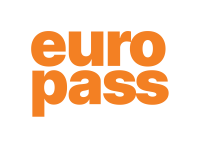
Playful Learning: Strategies for Reducing Stress and Energizing the Classroom
Participants will acquire knowledge and skills to implement a common language of well-being and the principles of Playful Learning in the classroom. They will concentrate on a heart-full approach and how to build a strong relationship between school and home.
Description
The set of competencies and skills required of today’s teachers is changing quickly and radically. In fact, teaching today is not only about what students see and hear. It’s much more about leading the energy in the classroom toward what the students feel. Thus, teachers’ energy and consideration of personal and learners’ well-being have never been more important. The course will clarify Playful Learning, and how to exploit active teaching methods and tools to bring energy to the classroom and have children learn through play. Playful Learning is a learning program developing and encouraging a more playful approach to children’s development and learning. Since its launch in 2013, it has contributed to strengthening children’s creative, experimental, and playful approach to the world and their motivation to learn. Participants will acquire all the knowledge and skills necessary to implement the principles of Playful Learning in their classroom. First, they will start strengthening their well-being, focusing on different methods to reduce stress, protect, keep up the energy, and recharge. Next, the course will focus on Playful Learning and how to implement a common language of well-being in the classroom. Participants will practice a variety of methods, energy tools, and body-mind activities all aimed at this very outcome. Part of the training will also concentrate on the heart-full approach. This helps teachers and students develop social-emotional skills such as empathy, kindness, and a positive tone. Combined with creative activities and energy tools it builds up a strong, helpful, and inclusive culture in your classroo...read more.
Learning objectives
The course will help you to:
- Understand and use Playful Learning to implement a common language of well-being in your classroom with hands-on tools and body-mind activities;
- Reduce stress and recharge your energy through practical tools and exercises;
- Use Playful Learning to strengthen the personal and social skills of your students;
- Inspire and involve the parents of your students in a positive and meaningful way to develop the overall well-being of your students;
- Exchanging experiences and examples of good practice in a multicultural and safe context.
--> Download all course info in PDF <--
Methodology & assessment
Certification details
Here's how we ensure your achievements are recognized and validated:
- Certificate of Attendance: Upon successful completion of your course, you will receive a Certificate of Attendance in line with Erasmus quality standards.
- Europass Mobility Certificate: If requested, you can also receive the Europass Mobility Certificate.
- Seamless Administration: We provide assistance and guidance to our participants throughout every step of the project: from the grant application to the final documents.
To make your participation accessible, our courses are designed to allow you to request 8 days of individual support for your subsistence costs. This includes 6 days for the course and an additional 2 days for travel.
Useful resources:
- Live Chat support: Monday-Friday | 8:30-22:30 CET
- FAQ
- Guides to Erasmus+
- OID Numbers and Fiscal Data
A 60 € late registration fee will be applied if you register less than 8 weeks before the course start date.
Pricing, packages and other information
-
Price:580Euro
Additional information
-
Language:English
-
Target audience ISCED:Primary education (ISCED 1)Lower secondary education (ISCED 2)Upper secondary education (ISCED 3)
-
Target audience type:TeacherHead Teacher / PrincipalSchool Psychologist
-
Learning time:25 hours or more
Past sessions
More courses by this organiser

3D Printing and Maker Culture for a Sustainable World

Effective School Leadership: Implementing Continuing Learning for All


